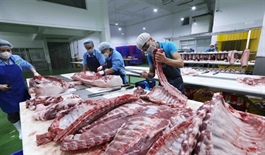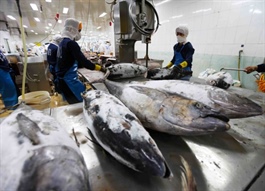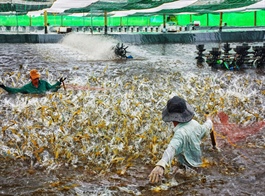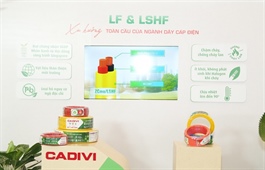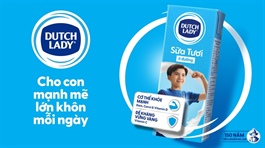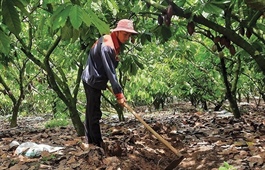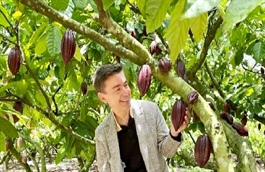EU deforestation rules pose challenges for rubber production in Việt Nam, Cambodia
EU deforestation rules pose challenges for rubber production in Việt Nam, Cambodia
The seminar was held against the backdrop of new European Union (EU) regulations on forest protection, which are posing significant challenges to the rubber supply chain in the Southeast Asian region.
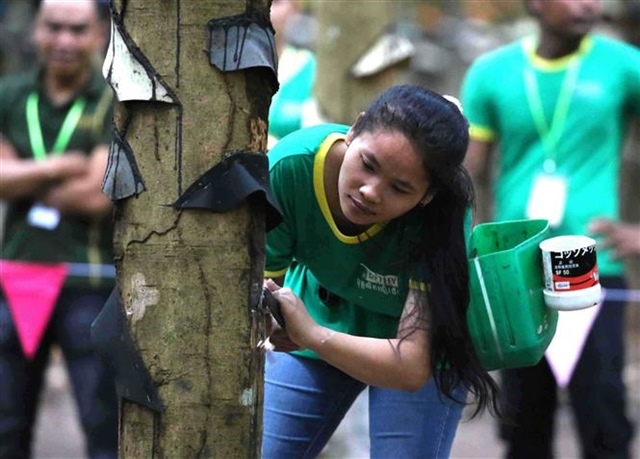
A Cambodian worker during a rubber harvest competition held by the Vietnam Rubber Group (VRG). — VNA/VNS Photo |
Việt Nam and Cambodia share a strong partnership in natural rubber trade and investment, said participants at a seminar held in Phnom Penh on March 27 discussing the development of rubber production and investment opportunities on both sides of the border.
The seminar was held against the backdrop of new European Union (EU) regulations on forest protection, which are posing significant challenges to the rubber supply chain in the Southeast Asian region.
According to customs data, Việt Nam imported nearly one million tonnes of natural rubber from Cambodia in 2024, accounting for over 64 per cent of its total rubber imports and valued at more than US$1.2 billion. This volume is nearly equivalent to Việt Nam's domestic rubber production.
To date, Vietnam Rubber Group (VRG) is one of the largest investors in Cambodia, with 16 rubber plantation projects covering nearly 90,000 hectares and seven processing facilities.
Despite its growth potential, the Việt Nam-Cambodia rubber industry faces challenges from international regulations, particularly the EU Deforestation Regulation (EUDR). The EUDR prohibits imports of rubber linked to deforestation and requires importers to ensure full traceability of their products down to the plantation level.
"The EUDR presents both opportunities and challenges for the rubber industry. Companies with strong environmental management systems will have an advantage. However, ensuring full traceability remains a major hurdle, especially given the complexity of current supply chains," said Deputy Secretary-General of the Vietnam Rubber Association Phan Trần Hồng Vân.
Tô Xuân Phúc, from the environmental organisation Forest Trends, said one of the biggest challenges stems from the fragmented nature of rubber production in the region. Smallholder farmers account for 44 per cent of rubber production in Cambodia, 30 per cent in Laos and approximately 50 per cent in Việt Nam. These small-scale producers often lack complete legal documentation, making it difficult to meet EUDR’s traceability requirements.
In Việt Nam, 66 per cent of rubber farms operated by smallholders are smaller than three hectares, increasing the risk of non-compliance with export standards and driving up costs for businesses.
Trương Tất Đơ, a representative from the Department of Forestry and Forest Protection under the Vietnamese Ministry of Agriculture and Environment, said that smallholder farmers struggle with inadequate land records and incomplete production documentation, making it difficult to verify the legality of their rubber plantations.
Rubber theft also remains a serious issue, particularly in Laos — a neighbour of both Việt Nam and Cambodia -- where some companies report that up to 20 per cent of their latex is stolen and illegally exported. This poses significant legal risks for Vietnamese enterprises importing rubber from unverified sources.
Adaptations
To address these challenges, the Department of Forestry and Forest Protection has recommended that smallholder farmers form co-operatives to establish regional planting databases. Authorities are also urged to expand training programmes on production record-keeping and proper latex storage to ensure compliance with international standards.
According to Trương Tất Đơ, the rubber industry must implement comprehensive solutions to overcome the challenges posed by the EUDR. Enhancing data management systems, supporting smallholders in meeting regulatory requirements and ensuring the legal status of rubber plantations will be crucial for maintaining Việt Nam’s competitiveness in the EU market.
In response to EUDR pressures, many Vietnamese companies have proactively adjusted their operations to comply with the new regulations.
The Vietnamese Government is also working closely with the rubber industry to ensure adequate preparation. For instance, Chu Se Kampong Thom Rubber JSC, a subsidiary of VRG, has invested heavily in technology to enhance transparency and traceability. With 16,000 hectares of rubber plantations in Cambodia, the company is building a sustainable production model that adheres to international standards.
- 15:13 28/03/2025



